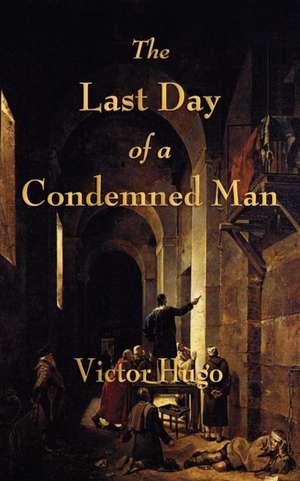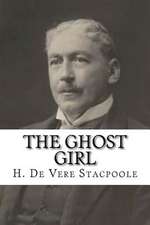The Last Day of a Condemned Man
Autor Victor Hugoen Limba Engleză Paperback – 25 oct 2010
| Toate formatele și edițiile | Preț | Express |
|---|---|---|
| Paperback (5) | 44.25 lei 3-5 săpt. | +5.58 lei 7-13 zile |
| Alma Books COMMIS – 4 noi 2021 | 44.25 lei 3-5 săpt. | +5.58 lei 7-13 zile |
| Dover Publications – 31 mai 2009 | 48.87 lei 3-5 săpt. | |
| CreateSpace Independent Publishing Platform – | 72.73 lei 3-5 săpt. | |
| Mint Editions – iun 2021 | 74.79 lei 3-5 săpt. | |
| Watchmaker Publishing – 25 oct 2010 | 53.04 lei 6-8 săpt. | |
| Hardback (1) | 127.83 lei 3-5 săpt. | |
| Mint Editions – 8 iun 2021 | 127.83 lei 3-5 săpt. |
Preț: 53.04 lei
Nou
Puncte Express: 80
Preț estimativ în valută:
10.15€ • 10.60$ • 8.40£
10.15€ • 10.60$ • 8.40£
Carte tipărită la comandă
Livrare economică 04-18 aprilie
Preluare comenzi: 021 569.72.76
Specificații
ISBN-13: 9781603863865
ISBN-10: 1603863869
Pagini: 124
Dimensiuni: 127 x 203 x 7 mm
Greutate: 0.14 kg
Editura: Watchmaker Publishing
ISBN-10: 1603863869
Pagini: 124
Dimensiuni: 127 x 203 x 7 mm
Greutate: 0.14 kg
Editura: Watchmaker Publishing
Caracteristici
It includes Preface to the 1832 edition, a manifest of Hugo's personal opinions, A Comedy about a Tragedy and Claude Gueux, an early example of "true crime" fiction.
Notă biografică
Victor Hugo (1802-1885) was a French poet and novelist. Born in Besançon, Hugo was the son of a general who served in the Napoleonic army. Raised on the move, Hugo was taken with his family from one outpost to the next, eventually setting with his mother in Paris in 1803. In 1823, he published his first novel, launching a career that would earn him a reputation as a leading figure of French Romanticism. His Gothic novel The Hunchback of Notre-Dame (1831) was a bestseller throughout Europe, inspiring the French government to restore the legendary cathedral to its former glory. During the reign of King Louis-Philippe, Hugo was elected to the National Assembly of the French Second Republic, where he spoke out against the death penalty and poverty while calling for public education and universal suffrage. Exiled during the rise of Napoleon III, Hugo lived in Guernsey from 1855 to 1870. During this time, he published his literary masterpiece Les Misérables (1862), a historical novel which has been adapted countless times for theater, film, and television. Towards the end of his life, he advocated for republicanism around Europe and across the globe, cementing his reputation as a defender of the people and earning a place at Paris¿ Panthéon, where his remains were interred following his death from pneumonia. His final words, written on a note only days before his death, capture the depth of his belief in humanity: ¿To love is to act.¿














